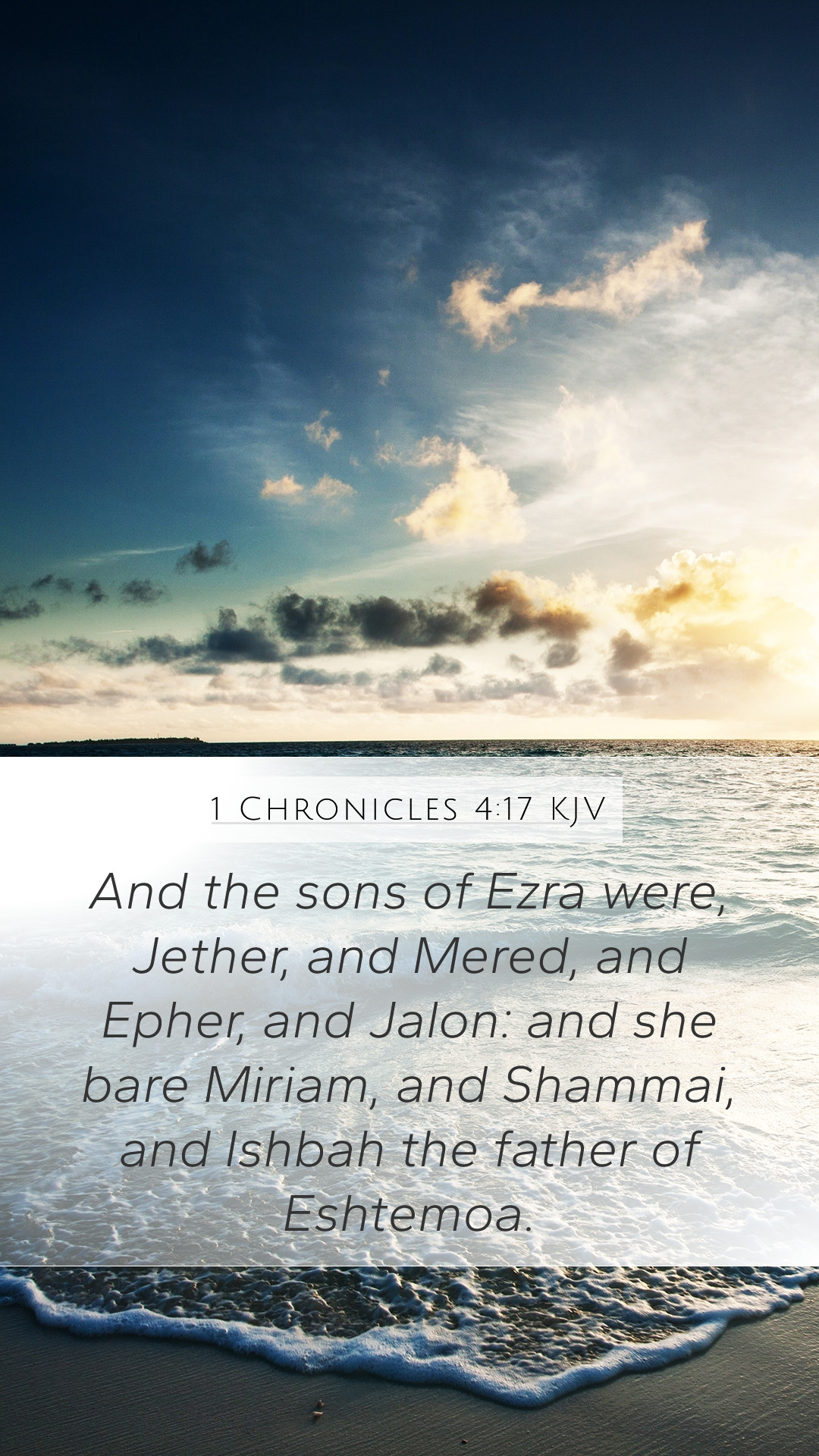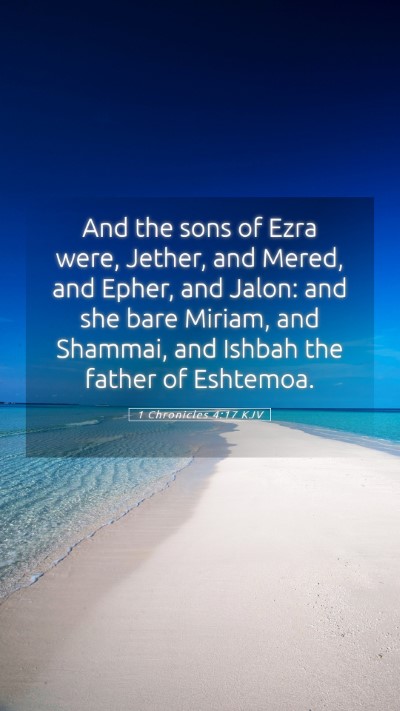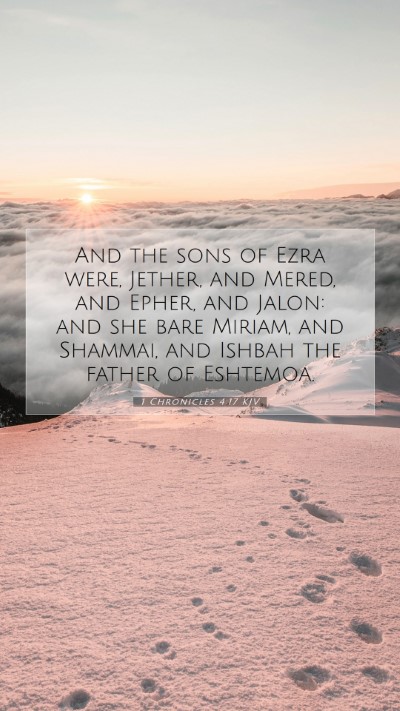Bible Verse Meaning of 1 Chronicles 4:17
The verse 1 Chronicles 4:17 details the lineage of a prominent family, emphasizing the roles of specific individuals and their contributions as recorded in the genealogy. This passage plays a crucial part in understanding the narrative of the Israelites, particularly in the context of tribal inheritance and God’s chosen people.
This summary draws upon insights from renowned public domain commentaries such as those by Matthew Henry, Albert Barnes, and Adam Clarke to provide a comprehensive understanding of the verse.
Context and Historical Background
1 Chronicles primarily focuses on the history of the Israelite people, particularly from the perspective of their genealogy and the priestly line. Understanding this context is crucial for interpreting 1 Chronicles 4:17, as it provides insight into the importance of lineage for the Israelites, especially regarding their identity and covenant with God.
Verse Breakdown
- Genealogical Importance: This verse highlights that genealogies are not mere lists but reflect God's providential hand in maintaining His covenant through generations.
- Focus on Individuals: The individuals mentioned are significant within the narrative, illustrating how each played a role in fulfilling God's promises.
- The Role of the Tribe: This lineage showcases how the tribes of Israel were distinct yet interwoven, stressing unity in diversity within God's people.
Commentary Insights
Matthew Henry emphasizes the significance of careful attention to genealogies, suggesting that they reveal God’s faithfulness through generations. He points out how each name represents a link to God's promises and the continuity of His plan.
Albert Barnes offers a perspective that highlights the leadership roles of those mentioned. He explains that even within genealogical records, there is instruction on how individuals can influence their families and communities.
Adam Clarke discusses the characteristics of the individuals mentioned, positing that their lives are examples of faith and dedication to God. Clarke stresses the importance of remembering these names, as they contribute to the broader narrative of God’s workings in history.
Application of the Verse
When considering the application of 1 Chronicles 4:17, believers are encouraged to reflect on their spiritual lineage and the impact of their faith in both their families and communities.
This passage prompts readers to think about how their actions and faith can influence future generations, reminding them of their role in God's unfolding story.
Cross References
- Genesis 46:23-25 – The genealogical records of the tribes of Israel.
- Numbers 26:5-51 – Further detailing the families and tribes within Israel.
- Ezekiel 48:1-29 – The division of land among the tribes, reflecting their genealogical significance.
Conclusion
In summary, 1 Chronicles 4:17 is more than a simple listing of names; it encapsulates profound truths about God’s faithfulness, the importance of history, and the enduring influence of faith across generations. Such insights contribute significantly to our understanding of Bible verses and provide a rich foundation for further exploration in Bible study groups, online Bible study, and personal reflection.


